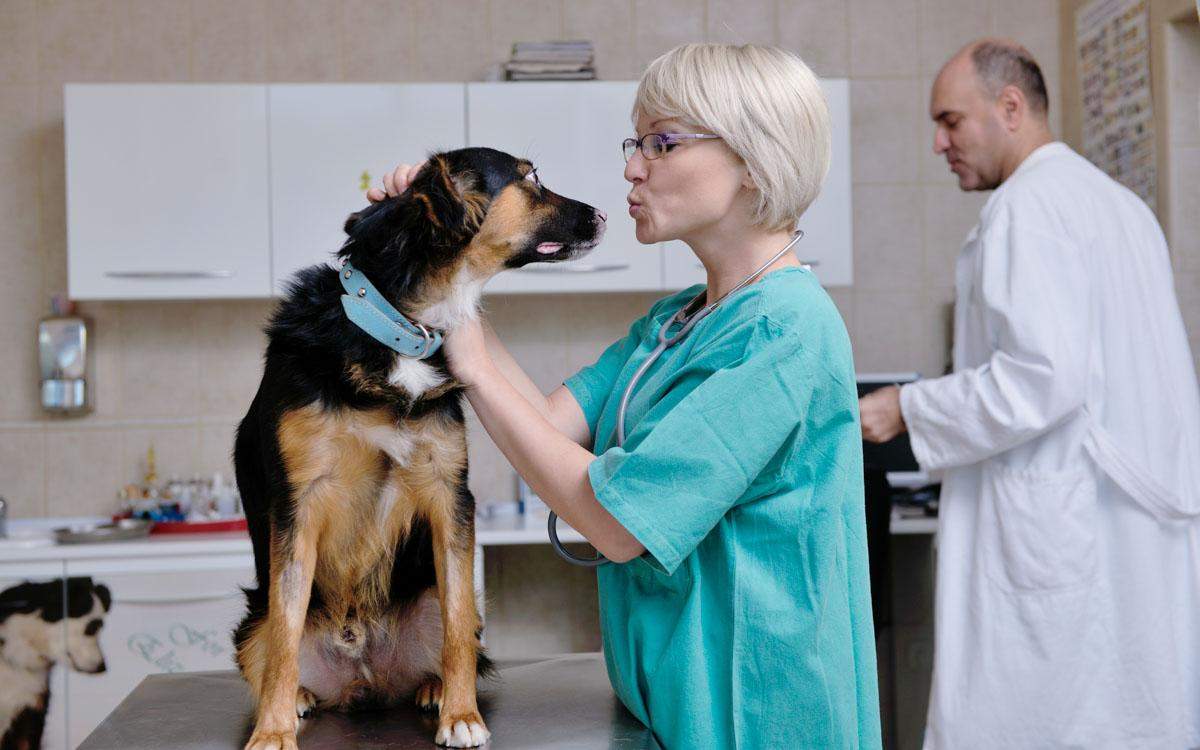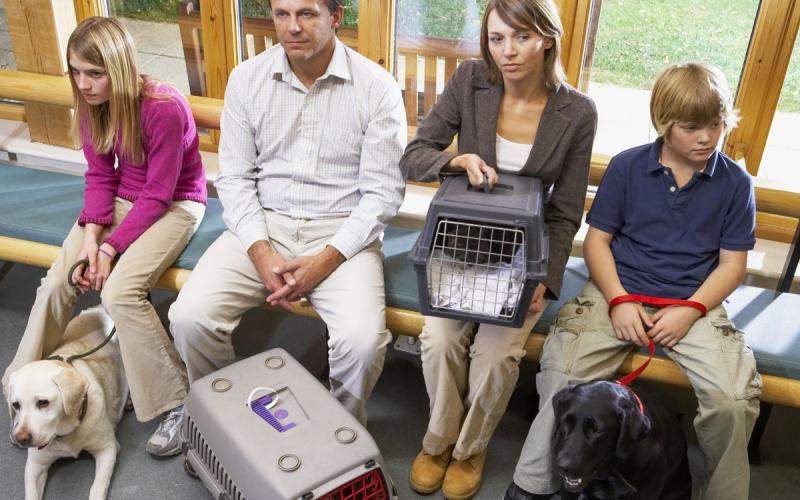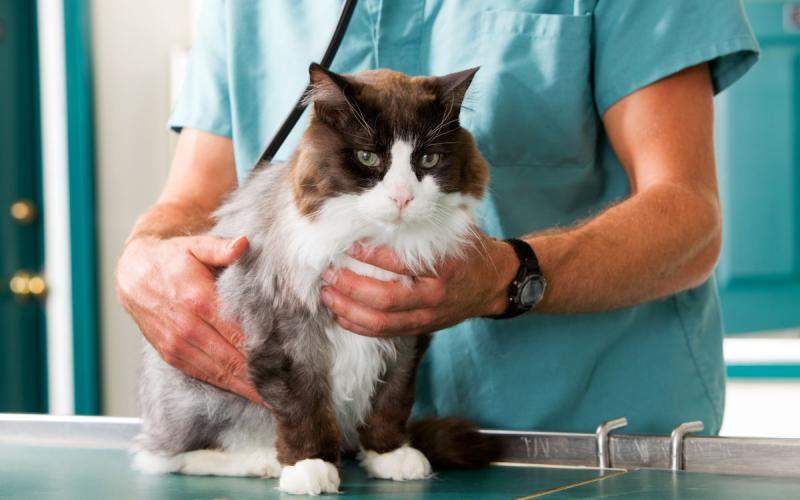How to Find the Right Veterinarian for Your Pet
Whether you’re a new pet owner or have owned several pets for years, it’s a good idea to select a veterinarian before you actually need one. This way, you’ll be working with someone who you feel comfortable with and who has a good rapport with your pet.
By: Sylvia Slezak | Feb 2020
 Veterinarian examining dog
photo by csp_dotshock
Veterinarian examining dog
photo by csp_dotshock
Choosing a good veterinarian is not as easy as it might seem. It requires the same patience and diligence that you would devote to finding any other kind of professional—a pediatrician, dentist, real estate agent, plumber, etc. By taking the time to select the veterinarian that you feel confident can provide for your needs as an owner and the medical needs of your pet, you will establish a satisfying and rewarding partnership.
Here are a few ways for you to find the right vet for your beloved animal friend.
Find a Vet Before a Crisis Happens
Guardians seek out new vets for a variety of reasons, including a recent adoption or move, or concerns about a current vet’s quality of care or treatment for a pet’s specific health problem. The best way to go is to choose the vet before acquiring a new pet or a crisis unfolds.
Choose an Accredited Vet
Find out how many veterinarians and licensed veterinary technicians are on staff, how long they have been in practice, and about their education and training. Are they accredited by the American Animal Hospital Association (AAHA)? Do they participate in continuing education? Are they members of a professional veterinary association such as the American Veterinary Medical Association and their state or local veterinary association? Search AAHA’s website at https://www.aaha.org/your-pet/hospital-locator/ for a list of accredited vets in your area.
Check Out Their Website
Look at each veterinarian’s website to get a glimpse of the vet’s personality, staff, and capacity. You may be able to find out additional information such as location, rates, specializations, and number of employees.
Ask For Recommendations
Talk to neighbors, friends, and family and trusted neighbors, especially those who take a keen interest in their dogs’ health and well-being. Talk to breeders or breed club members who likely know of veterinarians that are knowledgeable about your breed and the types of problems they experience. Groomers, managers of local shelters, and local dog trainers could be helpful, and state and local veterinary societies can also help you locate a convenient, reputable veterinarian.
Understand How The Clinic Operates
Call the clinic and speak with the office manager or similar authority figure to find out about hours of operation, overnight care practices, billing details, and any other services associated with the clinic. Find out if the veterinarian provides written estimates for services. Are payment plans or financial assistance options available if you need them? If your pet is insured, does the clinic accept your insurance plan? Are you provided with a detailed explanation of services for every visit? This will give you a chance to interact with staff, see how knowledgeable they are, and the type of customer service they provide.
Visit Each Veterinarian’s Office Without Your Pet
After you’ve compiled a short list of possible veterinarians for your pet, schedule appointments to meet and speak with each vet without your pet. Ask for a quick tour to see whether or not the office is clean and well organized, the type of environment the vet and the staff create, and how they interact with you, the animals, and other people. Observe whether or not the vet is patient when answering your questions.
Ask a series of questions about important topics:
- What variety of services does the vet clinic provide?
- What is their approach to treating pets?
- Do they have any provisions made for emergency coverage, like after-hours and weekends?
- What sort of equipment does the practice use?
- Do they provide in-house digital x-rays, dental x-rays, pet dental care, ultrasound, and radiology, as well as veterinary surgical services such as general surgery and neutering, orthopedic procedures, and assistance with chemotherapy?
- What is the average wait time for making a non-emergency appointment?
- Can you request an appointment with a specific veterinarian?
- Do they focus on nutrition and preventative care?
- What is their belief about treating cancer, spaying and neutering, supporting senior dogs, and euthanasia?
- Do they believe in prescribing holistic or alternative treatments when appropriate?
- Does the vet refer patients to specialists?
- How are overnight patients monitored?
- Are they equipped to handle an emergency?
- How are patients evaluated before anesthesia and surgery?
- What is the protocol for pain management?
Consider Choosing a Close Location
A close and convenient location is beneficial when you’re taking your dog to the vet. And should your dog need emergency care, you’ll want to know exactly where to go. If your new veterinarian does not provide 24-hour care, they should provide precise directions to the nearest 24-hour emergency facility.
Let Your Pet Meet The Vet
When you’ve identified the vet you feel might be best for your pet, schedule a checkup or a get-to-know-you visit to see how the vet handles your pet and observe how your pet reacts. It’s
important for pets and vets to be able to get along enough to perform a basic exam. Some pets will be nervous no matter which vet you go to, but pay attention to the vet’s efforts to put your pet at ease.
What To Do If You Have Problems With Your Vet
For whatever reason, there may come a time when you may need to leave your current vet. When you do, remember to ask for a complete copy of your pet’s health records to be sent to you or your new vet.
Veterinarians care about you, the owner, and about your pets, and are available to provide you with the information and resources needed to take good care of your animals. CityOf.com also provides information and resources to take good care of your pet. Search CityOf.com to find pet grooming, kennels, pet sitting, pet training, and more.















